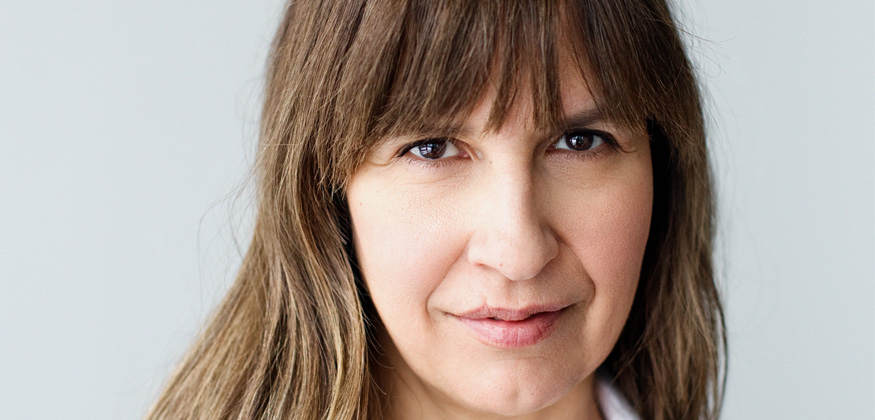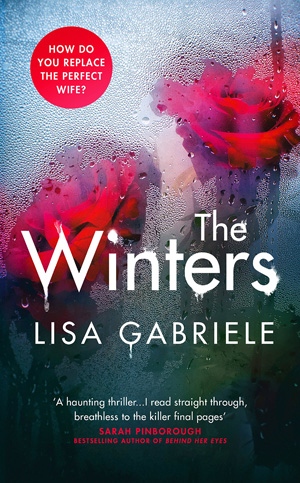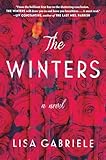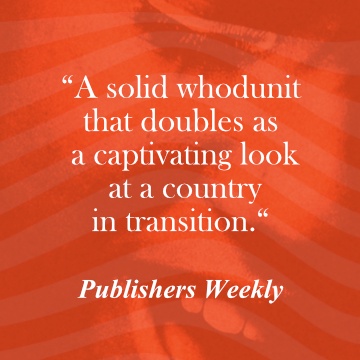
Lisa Gabriele’s new novel The Winters is a skilful update of Daphne DuMaurier’s classic psychological thriller, Rebecca. Clearly, the issues that confronted DuMaurier’s unnamed heroine continue to resonate today, some 80 years later. The book was an instant bestseller in Lisa’s home country, Canada, and is selling well elsewhere. What makes an author want to rework a classic like this? We decided to find out and invited Lisa Gabriele to join us for an interview…
 What inspired you to take on a modern version of Daphne du Maurier’s Rebecca, one of the classics of domestic noir?
What inspired you to take on a modern version of Daphne du Maurier’s Rebecca, one of the classics of domestic noir?
‘Take on’ is such an adversarial way to put it, but you’re right, when you write a book like The Winters, there are going to be adversaries, people who say ‘How dare you?’, though there have been far fewer than I had expected. The spark of the idea happened in a moment, when I was re-watching the Hitchcock movie and became angered by how removing Rebecca’s murder made Maxim so sympathetic. In the movie her death is rendered as an accident, remember. It was the fall of 2016, and between the US election and the burgeoning #metoo movement, men seemed to be getting away with a lot. It occurred to me that women wouldn’t behave the same way today as the unnamed narrator of Rebecca. Or worse – perhaps they would. Either way, there was a puzzle to be solved and I got to work.
How did you choose which elements of the original to adapt and which to dispense with? Do certain elements just not resonate with modern readers?
This is such a good question, because it was a constant dance. I wanted my book to be a response to Rebecca, while also standing on its own, for those unfamiliar with the original.
The opening of The Winters – a quick vacation fling that turns serious and using a variation on the names – are ways to trick Rebecca fans into thinking this is a retelling. Once my characters return to their own mansion in Long Island, the plot of The Winters diverges. The addition of an unstable teenaged daughter, Dani, in lieu of an evil housekeeper keeps the stakes higher, I think. Besides, Mrs Danvers’ antics in 2018 would get her fired. Though The Winters heads somewhere different, there are Easter eggs for Rebecca fans: a dress stunt, a forbidden part of the estate, a second body, a joke about a ‘paid companion’, as well as mention of a child’s red coat and noisy black birds, nods to other du Maurier tropes, all of which I hope makes it fun for her fans.
 What features of The Winters do you believe 21st century readers will most appreciate?
What features of The Winters do you believe 21st century readers will most appreciate?
The use of social media, I think. How can you have a worldly 15-year-old character and exclude it? Making Dani’s Instagram account a plot point added to the fun house mirror effect of The Winters and ratcheted up the tension. How much of what’s posted is really real? This only underscored the unreliability of the information our protagonist was receiving. So much fun to play with.
From the reader’s perspective, what do you believe are the most important elements of the domestic thriller?
For a domestic thriller, a house that is its own character is important and delicious to read and write about. And people who are unhappy at some fundamental level, though you don’t know why at first. All vile actions sprout from unhappiness. Unraveling a plot is really about finding the source of the unhappiness. Once you find that, all becomes clear.
Why do you think we like to read about people and situations that terrify us?
At the root of all our character defects is fear, and it’s something everyone can relate to. Everyone’s afraid of something, and everyone covers their fears with lies and obfuscations of some kind, big and small. I often think my obsession with an excellent thriller comes less from wanting to feel my own fears than to understand how and why people behave so badly in the face of them.
What are you writing plans for the next few months, once you get past this book launch?
I’ve started a new novel that has to do with recovery and memory, and two women, one of whom may not be who she says she is. I’ve also just started collaborating with a woman who has lived a rather big life; we’re trying to figure out how best to tell her story. And I’ve pitched an investigative podcast with my sister. So a number of coals on the fire and I haven’t yet prioritised any one thing. That tends to happen naturally, so I’m not fretting yet.











